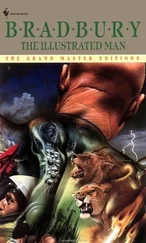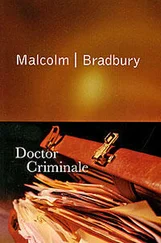Malcolm Bradbury - The History Man
Здесь есть возможность читать онлайн «Malcolm Bradbury - The History Man» весь текст электронной книги совершенно бесплатно (целиком полную версию без сокращений). В некоторых случаях можно слушать аудио, скачать через торрент в формате fb2 и присутствует краткое содержание. Жанр: Современная проза, на английском языке. Описание произведения, (предисловие) а так же отзывы посетителей доступны на портале библиотеки ЛибКат.
- Название:The History Man
- Автор:
- Жанр:
- Год:неизвестен
- ISBN:нет данных
- Рейтинг книги:3 / 5. Голосов: 1
-
Избранное:Добавить в избранное
- Отзывы:
-
Ваша оценка:
- 60
- 1
- 2
- 3
- 4
- 5
The History Man: краткое содержание, описание и аннотация
Предлагаем к чтению аннотацию, описание, краткое содержание или предисловие (зависит от того, что написал сам автор книги «The History Man»). Если вы не нашли необходимую информацию о книге — напишите в комментариях, мы постараемся отыскать её.
The History Man — читать онлайн бесплатно полную книгу (весь текст) целиком
Ниже представлен текст книги, разбитый по страницам. Система сохранения места последней прочитанной страницы, позволяет с удобством читать онлайн бесплатно книгу «The History Man», без необходимости каждый раз заново искать на чём Вы остановились. Поставьте закладку, и сможете в любой момент перейти на страницу, на которой закончили чтение.
Интервал:
Закладка:
After a while, Barbara rises, and goes to the door of the living-room. 'Felicity,' she shouts into the complex acoustics of the hall, 'Howard and I are busy planning this party. I wonder whether you'd mind bathing the children tonight?'
'Yes, I do mind,' shouts Felicity from somewhere, probably the lavatory, where she spends much time, 'I'm tired of being exploited.'
'I don't know what's the matter with Felicity,' says Barbara, sitting down again in the corduroy chair. 'Never mind,' says Howard, 'I think she's in another crisis.'
'I expect you stopped laying her,' says Barbara, 'you might have thought of me.'
'I try to do my best,' says Howard, 'but there's so much.'
'Yes, we gathered,' says Barbara, 'from Carmody's camera.'
'What about the Beamishes?' asks Howard. 'Or is it Beamish and Beamish?'
'They're together,' says Barbara, 'they have been ever since Dr Beniform went away. But would they come if you invited them?'
'Henry's a friend of mine,' says Howard. 'Still?' asks Barbara. 'After Mangel? I can't imagine he ever wants to see you again.'
'Oh, Henry sees the other point of view,' says Howard. But there is good reason to wonder, for, if the high point of radical success in the term was the occasion of the Mangel lecture, it did not go exactly well for Henry. For the department did issue its invitation to Mangel, and there was much dissent among the faculty, and much resentment, and the news penetrated with great and mysterious speed to the radical student groups on campus who, having already managed two sit-ins, felt in great strength and in a mood of unprecedented cooperativeness one with another. They put up many posters, and held many meetings, some addressed by Howard, that martyr of Carmodian persecution; on the day of the lecture a great crowd gathered, outside the Beatrice Webb Lecture Theatre, where the event was to take place, chanting and angry. Professor Mangel had indicated in advance that his topic would be 'Do Rats Have "Families"?', but this was found a typical liberal evasion, and indignation ran the higher, and many bodies lay down and obstructed all the entrances to the room, while massive and hostile forces assembled inside, making the radical point with roars and posters.
'It was Henry's own fault,' says Howard, recalling the famous victory. 'He was determined to be provocative. Henry makes accidents.'
'There are people who feel he was the only one who behaved decently,' says Barbara. 'Christ, Barbara,' asks Howard, 'are you going soft in your old age?'
'I didn't like it,' says Barbara. The unfortunate thing was that the task of introduction had fallen to Henry; it should more properly have gone to Professor Marvin, but he had suddenly confessed himself afflicted by an alternative engagement, in Edinburgh, giving a lecture on messianism, or failing that to Mangel's old pupil, Dr Beniform, but she had been claimed by the demanding affairs of West Bromwich. In the event, it was Henry, who, that day, had stepped carefully through the bodies, and entered the forbidden space of the Lecture Theatre. 'Why didn't he just tell them what had happened?' asks Howard. 'Oh, you'd have been disappointed if he had,' says Barbara. For Henry had stood at the podium, stark with his bandaged arm; he had said, politely, 'I ask you all to disperse.' Peter Madden had pushed in front of Henry; he had announced to the audience, 'This lecture is forbidden by radical opinion.' The audience had roared its assent, 'Forbidden, forbidden,' and 'Fascist, fascist,' and then Henry had been unwise. He had pushed Peter Madden aside with his good arm; he had waved his bad one; he had shouted, 'You're the fascists; this is a crime against free speech.' Then the crowd had pushed and jostled; Melissa Todoroff, noticeable in the audience for her poster 'Hysterectomize Mangel', had thrown a bread bun at Henry; this had unleashed the forces, who surged onto the podium, and knocked Henry's unsteady body down, and somehow, in the mêlée, trampled him underfoot. In their anger they had then rushed to his office, left unlocked; they had pulled open the filing cabinets, and tipped out or stolen the papers; they had broken the silver-framed mirror; they had poured tea out of the Teasmaid over the Norwegian rugs, and then smashed the Teasmaid; they had tossed his research notes into the mess.
'He needn't have been provocative,' says Howard, 'he could simply have told them about Mangel.'
' Myra says he was afraid they might cheer,' says Barbara, 'and that he couldn't have borne.' In fact it was not until the next day, when Henry was in hospital, that the news about Mangel became known; of the many there that day, only Mangel had neglected to come, having died, the evening previous to the lecture, of a heart attack, in his London apartment. 'Let's ask him, anyway,' says Howard, 'it will give him a chance to make his peace.'
'The more we go into this,' says Barbara, 'the more I feel the last thing we need is a party. I think it's a very doubtful celebration.'
'You thought that last time,' says Howard, 'and it cheered you up.'
'My God, Howard,' says Barbara, 'what in hell do you know about my cheerfulness or my misery? What access do you have to any of my feelings? What do you know about me now?'
'You're fine,' says Howard. 'I'm appallingly miserable,' says Barbara. 'Tell me why?' asks Howard. 'I prefer not to,' says Barbara. 'Okay,' says Howard, 'you need a party.'
'My God,' says Barbara, but they go on planning, and talking. A bit later on they go out into the hall, and one stands by and the other makes calls, and then they reverse roles, for the Kirks do everything together and in fairness. Sometimes the telephone is not answered, and sometimes the answer is a refusal; but there is, as they surmise, the human stuff ready and available to be a party, a seasonal, Christmas party. 'It'll be fine,' says Howard. Afterwards they eat, and later they go to bed, and lie on each other. 'What you need is a break,' says Howard afterwards, 'there's just been too much happening.'
'To you,' says Barbara, 'not to me. Name one thing that in any good sense has lately happened to me?'
'Go up to London and shop,' says Howard. 'Buy presents.'
'There's nothing there,' says Barbara, 'nothing at all there.'
And the days go by, and Howard tidies up at the university, setting vacation essays, inviting the students who still manage, somehow, to be about to his party, and then it is the morning of Friday 15 December. The Kirks rise, early and together, they go down the stairs and into the kitchen. Felicity Phee, who still sleeps in their guest bedroom, is sitting at the pine table, dark-eyed, in her drawstring top and long skirt, eating toast; the children are somewhere, she does not know where. 'It's a pretty busy day,' says Barbara, 'I hope you can give me a hand.'
'Actually I'm packing,' says Felicity, 'I think you've had all the help from me you want.'
'But how will I manage tomorrow?' asks Barbara. 'Tomorrow will sort itself, Barbara,' says Felicity, 'you'll manage. I'm sure there's always someone who'll do all those jobs just so they can have the marvellous company of the Kirks.'
'Have we upset you, Felicity?' asks Barbara. 'Well,' says Felicity, 'I suppose a person always has to keep moving on. I'm just into something else. I'm joining a Hare Krishna community.'
'Oh, Felicity, that's not you,' says Barbara. 'I don't think too much is known around here about what's me,' says Felicity, 'I've done a lot for you both. I mean, I have, haven't I, Howard?'
'Yes,' says Howard, 'a great deal.'
'Well, you sort of hope to get something out of that, and if it doesn't work out, well, you have to keep moving. That's Dr Kirk's advice. He likes people to keep moving.'
'Oh, good,' says Barbara, 'you've discussed it.'
'I mean, I don't say there's so much that's smart about his advice,' says Felicity, 'but that's his job, and I suppose he sort of knows something about it. Maybe.'
Читать дальшеИнтервал:
Закладка:
Похожие книги на «The History Man»
Представляем Вашему вниманию похожие книги на «The History Man» списком для выбора. Мы отобрали схожую по названию и смыслу литературу в надежде предоставить читателям больше вариантов отыскать новые, интересные, ещё непрочитанные произведения.
Обсуждение, отзывы о книге «The History Man» и просто собственные мнения читателей. Оставьте ваши комментарии, напишите, что Вы думаете о произведении, его смысле или главных героях. Укажите что конкретно понравилось, а что нет, и почему Вы так считаете.











